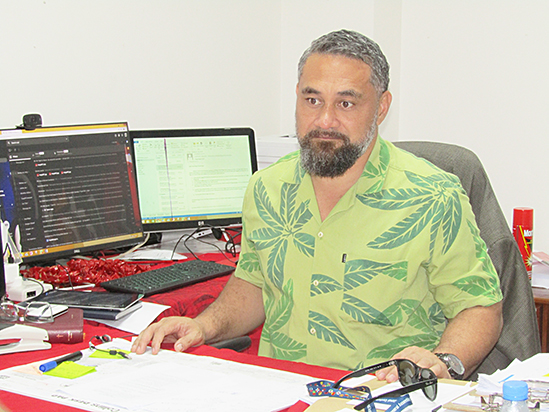
By Mataeliga Pio Sioa
The Electoral Commissioner, Faimalomatumua Mathew Lemisio, is not budging on the return of the Election Writ to the Head of State for the election of woman MP Ali’imalemanu Alofa Tu’uau.
Faimalomatumua activated Article 44(1A) of the Constitution to allow for the election of the Alataua Sisifo MP to make up the 10% of seats required for women in Parliament.
The declaration of MP Ali’imalemanu as the 6th woman to increase from 51 to 52 seats in Parliament is now a matter for the Supreme Court to decide.
It has also become the subject of serious debate in the legal community in Samoa and in New Zealand.
Former Attorney General and a senior member of the Samoa Law Society, Taulapapa Brenda Heather, criticised the Electoral Commissioner for his interpretation of the Constitution.
“For him to do so was unwise and foolhardy and it should have been left for the Supreme Court to decide,” Taulapapa told a New Zealand based online radio in an interview.
Commissioner Faimalomatumua is aware of the comments and respected them as the former Attorney General’s personal views.
He questioned however whether her views were objective.
“I have so much respect for her but we are not bound be her views or obligated to follow them at all,” Faimalomatumua reacted when asked by Newsline Samoa.
“My role as Commissioner is to follow and implement the Constitution, the court interprets and that is exactly what is happening now.
“The matter is now before the Court and in respect of the legal process, we cannot comment more on the issues.”
A respected Samoan law lecturer at Auckland University, Fuimaono Dylan Asafo, left many confused with his interpretation of the controversial article of the Constitution.
The Harvard University graduate with a Masters in Law and also of Auckland University with another Masters of Law, supported at first the decision by the Electoral Commissioner.
He later revised his legal interpretation to disagree with the election of MP Aliimalemanu.
The whole debate revolves around whether the 10% women representation in Parliament should still stay at 5-seats as it was when it was a 49-seat Parliament or 6-seats now that it has increased to 51-seats.
The Supreme Court is giving priority to the hearing of the motion by the FAST political party that the activation of the article of the Constitution was ‘unlawful and unconstitutional’ and for the election of the extra woman MP void.
The Supreme Court ruling will break the 26-seat deadlock and decide a new Government when Parliament is called into session on a date yet to be determined.
More Supreme Court hearings are expected to follow that may again lead to more changes in the balance of political power and new elected Governments.
